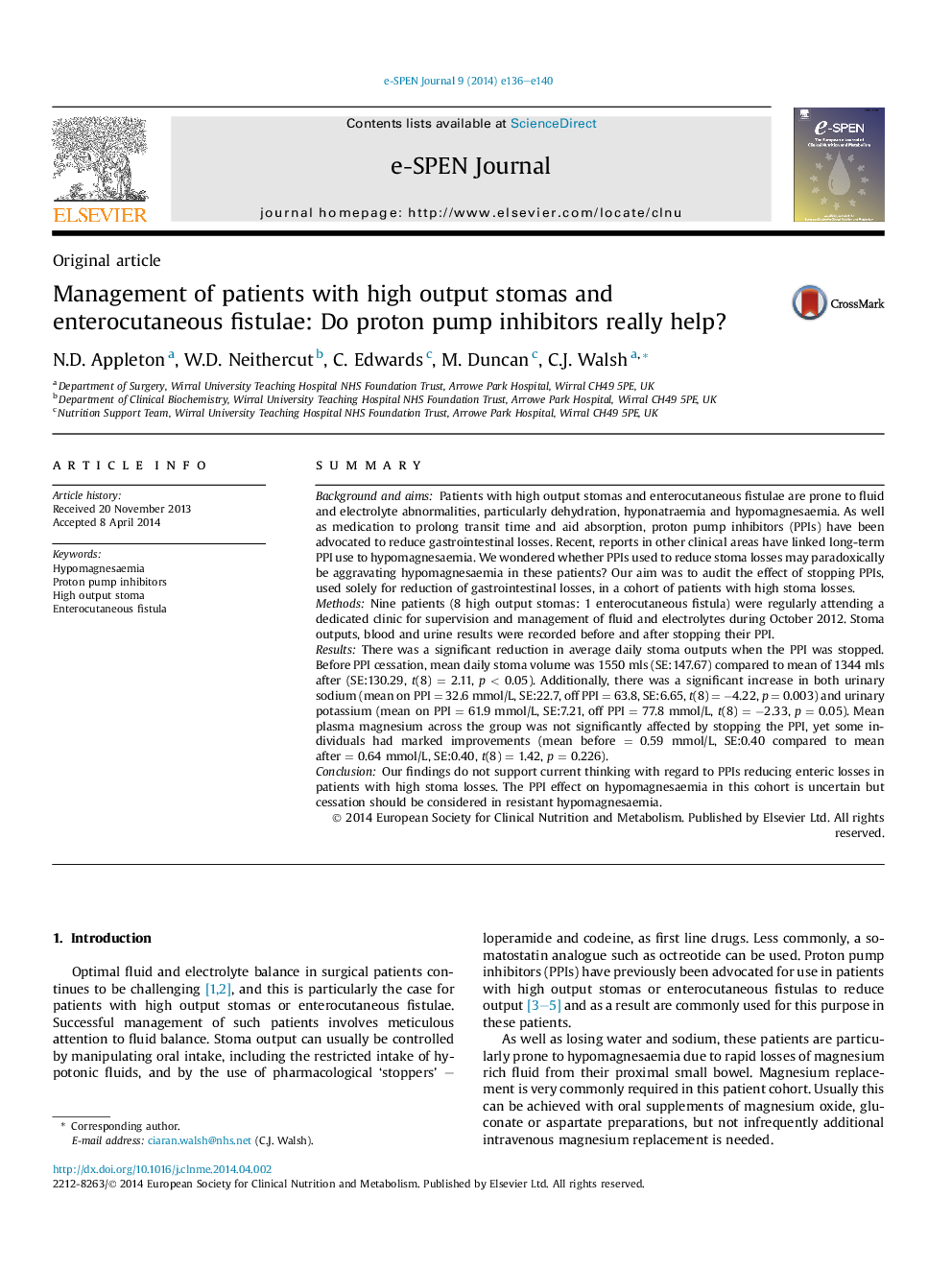| Article ID | Journal | Published Year | Pages | File Type |
|---|---|---|---|---|
| 2690016 | e-SPEN Journal | 2014 | 5 Pages |
SummaryBackground and aimsPatients with high output stomas and enterocutaneous fistulae are prone to fluid and electrolyte abnormalities, particularly dehydration, hyponatraemia and hypomagnesaemia. As well as medication to prolong transit time and aid absorption, proton pump inhibitors (PPIs) have been advocated to reduce gastrointestinal losses. Recent, reports in other clinical areas have linked long-term PPI use to hypomagnesaemia. We wondered whether PPIs used to reduce stoma losses may paradoxically be aggravating hypomagnesaemia in these patients? Our aim was to audit the effect of stopping PPIs, used solely for reduction of gastrointestinal losses, in a cohort of patients with high stoma losses.MethodsNine patients (8 high output stomas: 1 enterocutaneous fistula) were regularly attending a dedicated clinic for supervision and management of fluid and electrolytes during October 2012. Stoma outputs, blood and urine results were recorded before and after stopping their PPI.ResultsThere was a significant reduction in average daily stoma outputs when the PPI was stopped. Before PPI cessation, mean daily stoma volume was 1550 mls (SE:147.67) compared to mean of 1344 mls after (SE:130.29, t(8) = 2.11, p < 0.05). Additionally, there was a significant increase in both urinary sodium (mean on PPI = 32.6 mmol/L, SE:22.7, off PPI = 63.8, SE:6.65, t(8) = −4.22, p = 0.003) and urinary potassium (mean on PPI = 61.9 mmol/L, SE:7.21, off PPI = 77.8 mmol/L, t(8) = −2.33, p = 0.05). Mean plasma magnesium across the group was not significantly affected by stopping the PPI, yet some individuals had marked improvements (mean before = 0.59 mmol/L, SE:0.40 compared to mean after = 0.64 mmol/L, SE:0.40, t(8) = 1.42, p = 0.226).ConclusionOur findings do not support current thinking with regard to PPIs reducing enteric losses in patients with high stoma losses. The PPI effect on hypomagnesaemia in this cohort is uncertain but cessation should be considered in resistant hypomagnesaemia.
